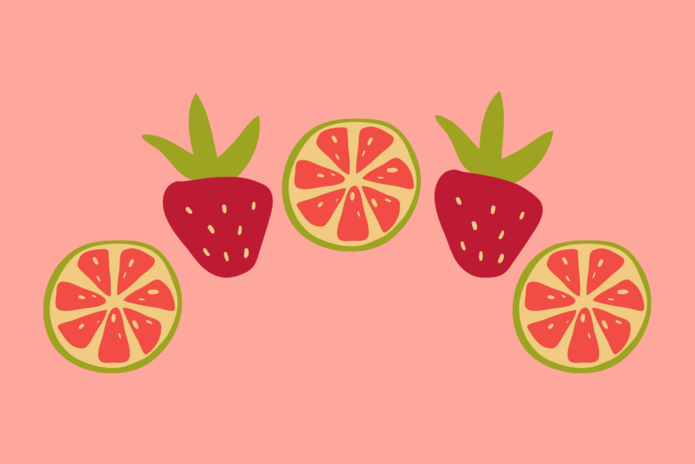Today, we are bombarded with different nutrition facts on social media, many of which come from uncertified food bloggers, influencers or company marketing strategies. It is almost impossible to decipher which nutrition facts are true and which are created for some kind of monetary gain. Not only are many of these common diet trends inefficient in reaching your health goals, many of them may actually be incredibly harmful to our bodies. Here are five common misconceptions that people think about food:
- Deeming a food organic automatically makes it healthy.
-
Today, the word “organic” is a huge health-food buzzword. The word is placed on food products on all levels of the healthy-food range, extending from fruits to soda. It seems like many people believe that the word “organic” is interchangeable with the word “healthy,” when in reality that correlation is incredibly convoluted. The hard truth is that organic snacks are still snacks and organic sodas are still sodas. Eating these foods in excess is not all of a sudden acceptable for your health just because they meet the requirements for an organic label. Despite organic qualities, unhealthy foods deemed organic are still replete in sugar, fat and empty calories. Reducing the harmful pesticides in food does not increase its overall nutritional value.
- Low-fat versions of foods are better.
-
This is probably the misconception that I believed for the longest time because without any scientific background, it makes sense! In theory, the less fat you consume through food means the less fat found in your body, right? That is actually not true at all. Despite many popular beliefs, fat in your food does not turn directly to fat in your body. The only way that people gain body fat is if they consume an excess of calories (from any food group). The extra calories are turned into fat and stored in your body. In fact, fat is actually an essential part of your diet. In addition, when foods are stripped of their fat component to create “low fat” versions, the fat is usually replaced with sugars and salts, which can be more detrimental to your health goals.
- Removing gluten from your diet benefits everyone.
-
If you do not have Celiac Disease or a gluten intolerance, eating a gluten-free diet may not actually be beneficial. Just like discussed earlier with organic foods, “gluten-free” is just another health-food buzzword. Gluten-free cookies are still cookies; the only difference is that people with Celiac Disease can enjoy them as well. In addition, many times gluten-free flour is very nutrient-poor or refined. All the fat, sugar and calories are still there, so swearing off gluten if gluten does not cause you any gastrointestinal distress is useless.
- You should stop eating food after a certain time.
-
There is absolutely no scientific research to support this very popular health claim. Calories eaten at 7:59pm and calories eaten at 8:05pm will have the exact same effect on your body. The components or health properties of calories or food does not change with time. If you are hungry at night, eat! As stated before, the only time consuming calories can lead to weight gain is if you eat an excessive amount. Calories cannot tell time, so listen to your body and eat when you are hungry.
- Popular diets bring long-term weight loss
-
There are so many popular diets right now that promise exceptional weight loss- ranging from the keto diet to the paleo diet and the new f-factor diet. While many people have seen some positive short-term results from these diets, they are not sustainable, practical or healthy for the long run. These trendy diets will cause many people to gain the weight back and develop health issues. For example, a new study showed that the keto diet can actually cause heart rhythm problems because eliminating carbs for a long period of time impairs the cardiac system. Instead of following these difficult and time-consuming diets, eating a diet filled with whole, unprocessed foods and eating at a calorie deficit is the healthiest and most sustainable way to lose weight.
Don’t let food myths make you fear eating your favorite foods. Eating what you love in moderation is the only rule you need to know for safe weight loss. Never restrict the food you love because of a myth you heard on social media, especially if there is no scientific research backing it up!



